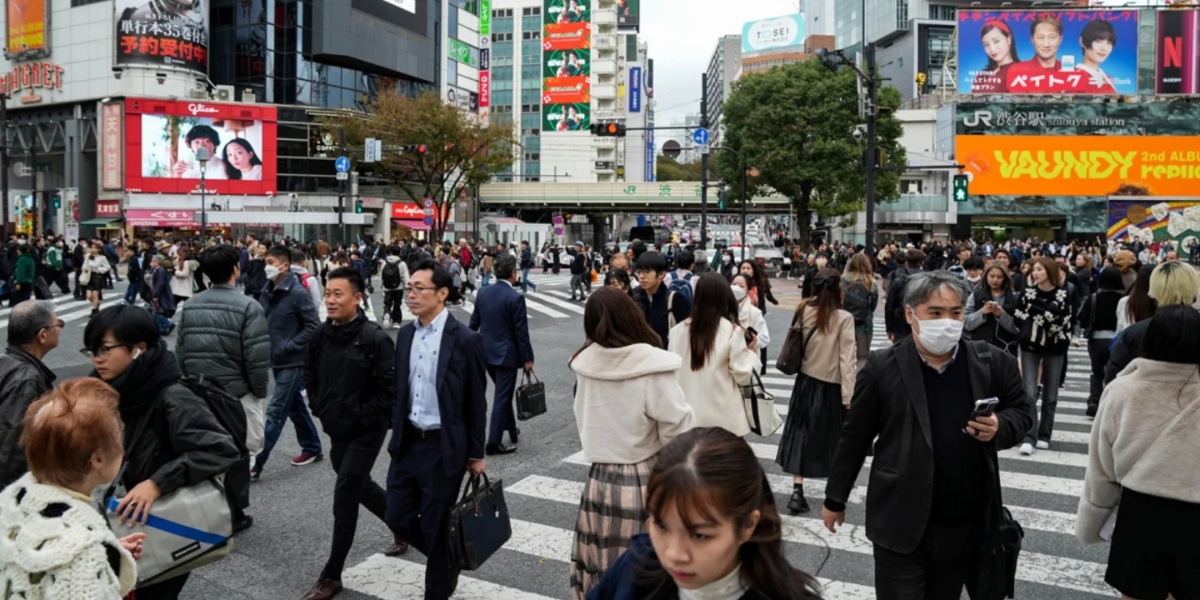Due to sluggish domestic demand, Japan’s GDP unexpectedly shrank, entering a recession and losing its ranking as the third largest economy in the world to Germany.
The Cabinet Office said on Thursday that the gross domestic product (GDP) dropped at an annualised pace of 0.4% in the last three months of 2023, following an annualised 3.3% contraction in the previous quarter. Generally speaking, two quarters of economic contraction in a row constitute a recession.
The decrease fell far short of market expectations. According to Reuters polled economists, the GDP will expand by an annualised 1.4% quarter over quarter from October to December.
According to the data, Japan’s economy ranked fourth in the world last year in US dollars, behind Germany.
There was especially little domestic demand. Consumer expenditure was one of the main components of domestic demand that was in negative territory. The only thing that helped was external demand, which is met by exports of products and services.
Half of the economy, or private consumption, fell by an annualised 0.9% in the fourth quarter as Japanese consumers struggled with rising food, fuel, and other commodity prices. It’s the third quarter in a row of declines.
According to Neil Newman, a strategist at Japanmacro located in Tokyo, “Japan imports 63% of its food and 94% of its base energy requirements, so a weaker yen contributes significantly to a higher cost of living.”
Among the currencies used by the Group of 10 industrialised nations, the yen has performed poorly, falling 6.6% against the US dollar since the beginning of this year.
“Private consumption was particularly weak, [and] market expectations was for it to be flat,” he said. “Unfortunately this will get worse in January following the Sea of Japan earthquake. People stop spending in times of natural disasters.”
On January 1, a tremor struck the Noto Peninsula in the central prefecture of Ishikawa, causing houses to collapse, fires to start, and tsunami warnings to be sent as far away as eastern Russia. Over 1,000 people were hurt and over 200 people perished.
Capital expenditures decreased by 0.3% in the fourth quarter, marking a third consecutive quarter of declines. The private sector’s housing investment fell by 4%.
Nonetheless, total development was bolstered by external demand. Thanks in part to the weaker yen, exports increased by an annualised 11% from the previous quarter. Specifically, inbound consumption—which includes tourist spending—rose significantly.
Japan’s markets have stayed strong despite entering a technical recession; the benchmark Nikkei 225 increased 1.2% and closed over the 38,000 mark for the first time since 1990.
CNN











